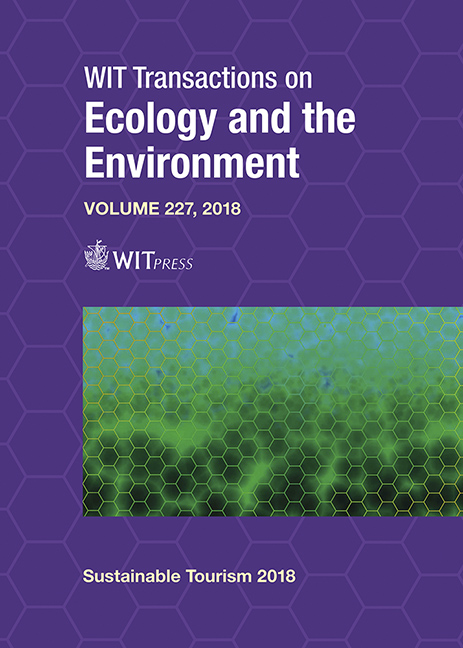CO-EVOLUTION, SUSTAINABLE TOURISM AND PROTECTED AREAS
Price
Free (open access)
Transaction
Volume
227
Pages
9
Page Range
73 - 81
Published
2018
Paper DOI
10.2495/ST180081
Copyright
WIT Press
Author(s)
VICTORIA L. MELLON
Abstract
This paper explores the concept of co-evolution and its role in achieving a greater understanding of sustainable tourism in the context of protected areas. Adopting a co-evolutionary perspective has potential to be a fertile ground for studying governance and policy of Sustainable Development. In the context of protected areas where social and ecological systems run parallel with each other, and where Sustainable Development has become a key objective, co-evolutionary development may be expected. Therefore, this exploration of sustainable tourism policy and governance in a protected area through a co-evolutionary lens uncovers a wide range of linkages and relationships to other policies, internal and external influences and the protected area’s historical context. The paper reveals how sustainable tourism policies in the Lake District National Park, England, developed incrementally and gradually over a period of 20 years and were often reformulated and reframed during this time scale. Similarly, the paper also discusses findings from research within the Peak District National Park Authority, England which reveal how drivers for sustainable tourism increased greater partnership working and how policies for sustainable development and sustainable tourism “co-evolved” during the studied period. The paper draws attention to the value of adopting a co-evolutionary approach to sustainable tourism research, particularly if institutions are operating in an environment where the ability to learn and understand the complexity of sustainable tourism and can contribute to their wider goals of Sustainable Development.
Keywords
protected area tourism, sustainable tourism, co-evolution, tourism governance





